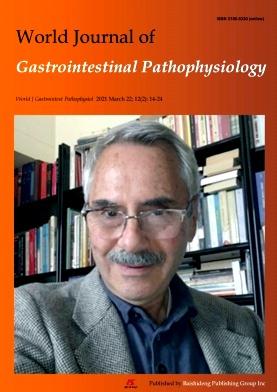Gastrointestinal dysbiosis and the use of fecal microbial transplantation in Clostridium difficile infection.
引用次数: 14
Abstract
The impact of antibiotics on the human gut microbiota is a significant concern. Antibiotic-associated diarrhea has been on the rise for the past few decades with the increasing usage of antibiotics. Clostridium difficile infections (CDI) have become one of the most prominent types of infectious diarrheal disease, with dramatically increased incidence in both the hospital and community setting worldwide. Studies show that variability in the innate host response may in part impact upon CDI severity in patients. That being said, CDI is a disease that shows the most prominent links to alterations to the gut microbiota, in both cause and treatment. With recurrence rates still relatively high, it is important to explore alternative therapies to CDI. Fecal microbiota transplantation (FMT) and other types of bacteriotherapy have become exciting avenues of treatment for CDI. Recent clinical trials have generated excitement for the use of FMT as a therapeutic option for CDI; however, the exact components of the human gut microbiota needed for protection against CDI have remained elusive. Additional investigations on the effects of antibiotics on the human gut microbiota and subsequent CDI will help reduce the socioeconomic burden of CDI and potentially lead to new therapeutic modalities.艰难梭菌感染的胃肠生态失调和粪便微生物移植的应用。
抗生素对人类肠道菌群的影响是一个值得关注的问题。在过去的几十年里,随着抗生素的使用越来越多,抗生素相关性腹泻呈上升趋势。艰难梭菌感染(CDI)已成为最突出的感染性腹泻疾病之一,在世界范围内的医院和社区环境中发病率急剧增加。研究表明,先天宿主反应的变异性可能部分影响患者CDI的严重程度。话虽如此,CDI是一种疾病,在病因和治疗方面都与肠道微生物群的改变有最显著的联系。由于复发率仍然相对较高,探索替代CDI的治疗方法是很重要的。粪便微生物群移植(FMT)和其他类型的细菌治疗已成为治疗CDI的令人兴奋的途径。最近的临床试验对使用FMT作为CDI的治疗选择产生了兴奋;然而,预防CDI所需的人类肠道微生物群的确切成分仍然难以捉摸。进一步研究抗生素对人类肠道微生物群和随后的CDI的影响将有助于减轻CDI的社会经济负担,并有可能导致新的治疗方式。
本文章由计算机程序翻译,如有差异,请以英文原文为准。
求助全文
约1分钟内获得全文
求助全文

 求助内容:
求助内容: 应助结果提醒方式:
应助结果提醒方式:


